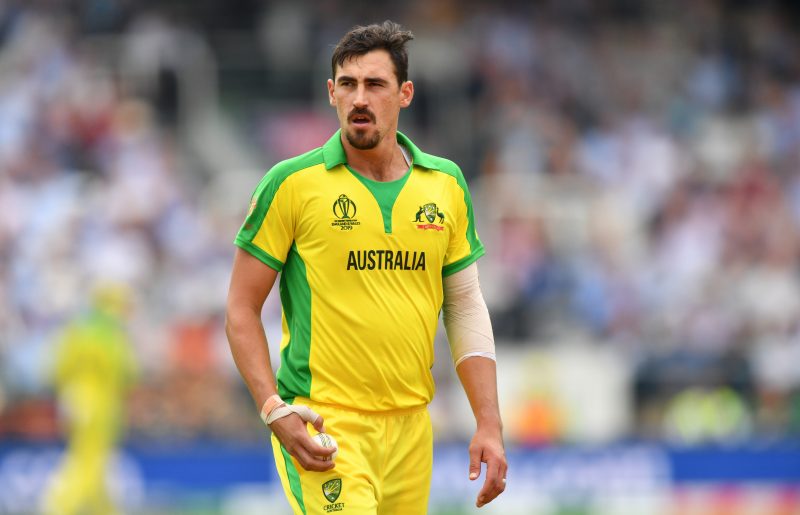Left is right for Cricket World Cup quicks
Australia’s Mitchell Starc is the leading wicket-taker at the World Cup (SAEED KHAN)
London (AFP) – They live in a right-handed world, historically stigmatised and challenged by tasks as simple as using scissors — but when it comes to taking wickets at the World Cup, being a southpaw seamer is a distinct advantage.
Mitchell Starc leads the way at the top of the World Cup bowling charts, with 24 wickets in eight matches so far and has Pakistan’s Mohammad Amir and New Zealand paceman Trent Boult for company in the top six.
Beginning with Australian Gary Gilmour’s famous rout of England in the semi-final at the inaugural World Cup in 1975, lefties such as Wasim Akram, Starc and Boult have confounded their opponents again and again at the World Cup.
The secret is in the different angles that left-armers create, giving batsmen an extra headache and forcing them to re-calcuate.
“I think lefties challenge the batsmen in their side-on stance and even with a straight ball, because the angle creates problems, especially for right-handers,” said Akram, whose three wickets helped win the 1992 final for Pakistan against England.
Egged on by a packed crowd in Melbourne, Akram came from around the wicket to create beguiling angles that bewildered first Allan Lamb and then Chris Lewis.
Remembered as “magical deliveries”, they helped Pakistan beat England to win the World Cup for the first time. Akram was man-of-the-match and ended as the tournament’s leading wicket-taker, with 18 dismissals.
Since then, left-arm bowlers from New Zealand to Sri Lanka have repeatedly proved their value, becoming the leading wicket-takers in four of the six World Cups since.
The 2015 World Cup had a glut of left-armed fast bowlers, with Starc, Mitchell Johnson and Boult leading the pack.
Pakistan, still buoyed by Akram’s bowling performance 27 years later, have benefited more than most from the power of lefties.
– Pakistan left-arm power –
Only about 10 percent of the global population are estimated to be left-handed but Pakistan produce more than their fair share of top-class left-armers.
Many of them have been inspired by Akram, a fact that delights the former Pakistan captain, who told AFP: “Of course it’s pleasing when you hear that the left-armers follow me.”
Pakistan’s 2019 World Cup squad boasts Wahab Riaz, highly promising teenager Shaheen Shah Afridi and Amir, whose career was interrupted by a five-year ban for spot-fixing.
Amir, who was selected in the squad despite a poor run of form, has been a revelation at the tournament in England and Wales, with 16 wickets so far.
Former India opening batsman Aakash Chopra said Pakistan’s left-armers gave them an advantage.
“Facing a quality left-arm fast bowler is a challenge in itself because they make a straight ball look like it has done something spectacular due to the angle they create,” he wrote in a column for cricinfo.com.
But if left-arm bowlers are so common, why do they still catch batsmen off guard?
Pakistan batting great Javed Miandad believes the more a batsman faces left-armers, the easier it becomes but he says they get more practice against right-armers.
“Most batsmen develop their technique against right-arm bowlers, throw down and bowling machines from the same angle, and they neglect the left-arm angles,” he said.
A good batsman should pay attention to the details and practice from all angles, he added. That will help to “counter the threat left-armers pose”.
Disclaimer: Validity of the above story is for 7 Days from original date of publishing. Source: AFP.


